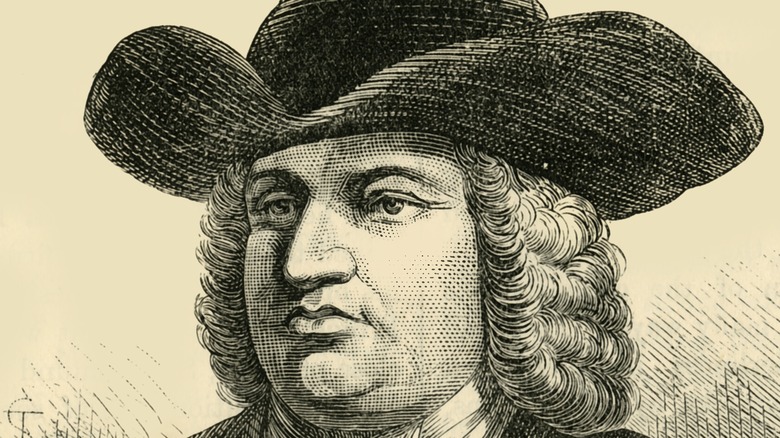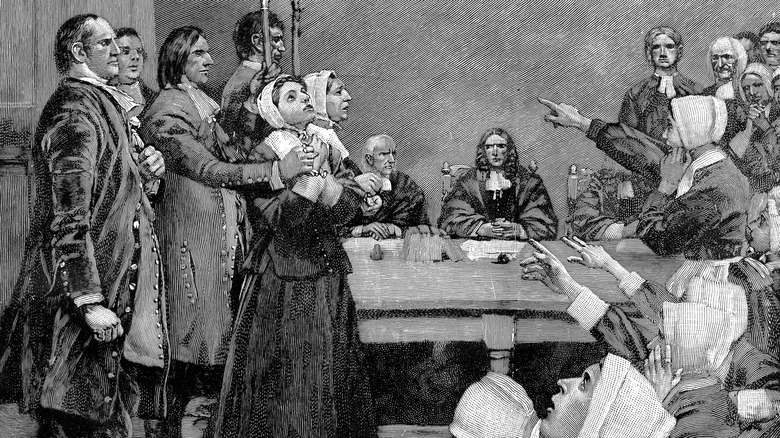How William Penn Played A Role In Pennsylvania's First Witch Hunt
Sometimes referred to as the "Quaker State", Pennsylvania has a storied history as one of America's original colonies. One of the most famous people associated with this settlement is its founder, William Penn, who was also a Quaker. Penn and Quakers like him were known for their belief in ideals like pacifism, spiritual equality for both men and women, and later on for their involvement in abolitionist and women's rights movements, per History. This group had extremely progressive views for the time but one thing that was still largely frowned upon was the practice of witchcraft.
In 1684, allegations of witchcraft were against brought a Swedish immigrant named Margaret Mattson, according to Penn Live. What sparked these accusations? Well, local farmer Henry Drystreet's cows were being weird. They had ceased to produce milk and for a farmer that is a problem. Of course, the most logical explanation for his cow's milk drying up had to be witchcraft. Mattson, along with another Swedish woman named Yeshro Hendrickson had been rumored to have bewitched the livestock of their English neighbors even before official charges were brought against them. Apparently, there was enough concern about this that Mattson was tried in a court of law. Luckily for her, the presiding judge was none other than William Penn.
Not-so-common court practices
Unlike the infamous Salem witch trials that would take place eight years later, Penn refused to allow hysteria to take over and result in absolute chaos. He took calculated steps to ensure a fair trial for the accused, including providing Mattson with a translator and putting other Swedish immigrants on the jury, according to PA Heritage. Mattson, who of course claimed she was not a witch, was also allowed to testify in her own defense and this was a big deal at the time. While these are common practices in modern-day court proceedings, in the 1680s, this sort of attention to detail didn't usually happen with your average trial. After testimony was taken from a total of three accusers and from Mattson herself, the decision was left up to Penn and the jury.
The court eventually came to the following conclusion: they acknowledge that though Mattson had a reputation of being a witch, she was not guilty of the crimes of which she was accused. She was then granted her freedom provisionally for six months and, if she behaved during that time, the £50 bond her husband put up would also be returned to them. William Penn turned out to be the real hero in this situation by letting his beliefs in fairness, equality, and tolerance guide his handling of the trial. It is possible that as a result, this was the only documented witch trial in the history of Pennsylvania.

